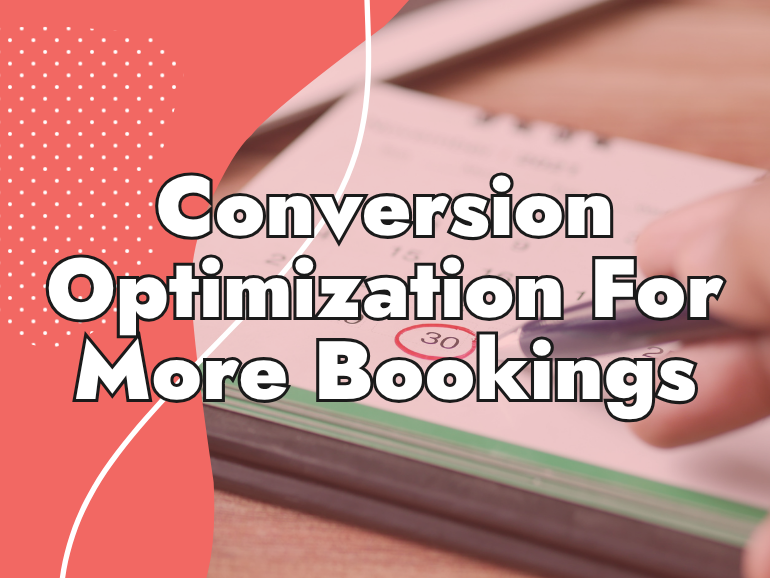What Does a Spammy Website Mean Today? How SEO Thinking Has Changed
A website can follow SEO best practices and still lose visibility if it fails to earn trust over time. This guidance is especially relevant for small to mid-sized businesses navigating modern search and AI-driven discovery, where prioritisation is based on credibility, consistency, and usefulness rather than penalties. Understanding how trust signals accumulate helps clarify why visibility changes and what actually matters going forward.
Written by Carissa Krause
Last updated January 19, 2026 • First published September 13, 2023

There was a time when calling a website “spammy” had a very specific meaning in SEO and let us tell you, we still remember it vividly!
It usually pointed to clear violations, risky shortcuts, or tactics that crossed an obvious line. Business owners would come to us worried about penalties, blacklists, and sudden ranking drops that felt dramatic and irreversible.
Today, the concern of lost traffic has not disappeared, but the reality has changed.
Websites are far less likely to be penalized outright. Instead, many are quietly filtered out, overlooked, or excluded from the places that now matter most, including AI-driven search results.
Understanding how this shift happened, and what it means for your website today, is essential for protecting your long-term visibility. In this article, we explain how the definition of “spammy” has changed, why websites now lose visibility without penalties, and what actually builds trust with modern search engines and AI systems.
TL;DR – Key Takeaways for Spammy Websites and SEO
- A spammy website in today’s search environment is one that fails to earn trust, not just one that breaks rules.
- Most sites are no longer penalised outright but are quietly deprioritised or excluded from visibility.
- Trust is assessed cumulatively through content quality, consistency, credibility, and user experience.
- Websites that rely on thin content, generic signals, or artificial authority struggle to be surfaced by search engines and AI systems.
What is a “Spammy” Website in 2026?
In modern search environments, a spammy website is one that fails to earn sufficient trust to be prioritised, even if it follows technical SEO guidelines. Search engines and AI systems evaluate websites holistically over time, weighing consistency, credibility, content quality, and user experience. Sites that rely on generic, thin, or misaligned signals are quietly deprioritised rather than explicitly penalised.
How Spammy Websites Were Defined in Early SEO Practices
Looking back to earlier generations of SEO, spam was largely rule-based and easy to identify. Search engines relied on clearer signals and more rigid thresholds. If a website crossed those lines, it could be flagged, filtered, or penalized.
LIKE WHAT YOU’RE READING?
If these articles are helpful,
imagine what our team
can do for you!


Not Sure What Your Website Needs Anymore?
Search has changed. AI tools are influencing visibility. Let’s clarify what actually matters for your business now.
Not Sure What Your Website Needs Anymore?

Search has changed. AI tools are influencing visibility. Let’s clarify what actually matters for your business now.
Over the years we’ve had more than our fair share of business owners calling us in a panic that their old SEO company broke the rules, cut corners, did something spammy, and as a result their rankings and traffic were suffering from a penalty.
Common examples of what was considered spammy included:
- Keyword stuffing that made content unreadable
- Hidden text or links designed for search engines, not users
- Duplicate or near-duplicate pages created at scale
- Paid backlinks from unrelated or low-quality sites
- Exact-match anchor text used repeatedly
- Doorway pages targeting locations or keywords without substance
At the time, these tactics often worked until algorithm updates caught up. When updates rolled out (like the Penguin Backlink Algorithm update), rankings and traffic could disappear overnight and rarely easily returned. This was such a big deal because the penalties were visible and explicit, recovery often required months of expensive and time consuming cleanup, and one poor SEO decision could undo years of progress.
Why Traditional Definitions of Spam No Longer Explain Modern Visibility Loss
Today, when a website starts to lose visibility, it rarely looks like a traditional SEO problem.
Most business owners are not breaking rules. They are not keyword stuffing, buying obvious spam links, or hiding content from users. On the surface, everything appears to be done “correctly.”
And yet, performance quietly slips. What business owners often notice is:
- Search impressions declining even when rankings appear unchanged
- Pages remaining indexed but rarely surfaced
- Blog content that never gains traction despite following SEO best practices
- Competitors being referenced in AI summaries while their site is absent
- Fewer meaningful leads despite steady publishing and optimization efforts
What makes this especially frustrating is the lack of clear warning signs. There is no penalty notice. No dramatic drop. No obvious mistake to fix.
From the outside, nothing looks broken. But the website is no longer being prioritized where visibility now matters most.
This is why the old definition of “spammy” falls short. The issue is no longer about doing something wrong. It is about something no longer being chosen.
Understanding why this happens requires a different way of thinking about how search engines and AI systems evaluate websites today, which brings us to the bigger shift in how trust is assessed.
How Search Engines Shifted From Spam Detection to Trust-Based Prioritisation
Search engines no longer evaluate websites by isolating individual SEO tactics. Instead, they assess how everything works together over time to build trust.
Modern search and AI systems are continuously asking broader questions to measure trust signal factors, such as:
- Does this website consistently demonstrate credibility?
- Does the content reflect real experience or surface-level information?
- Do signals across the site reinforce each other or conflict?
- Would this be a source users can rely on?
Rather than triggering penalties, these systems weigh trust incrementally.
Trust is cumulative. It builds or erodes slowly based on the sum of many small signals. A single weak page may not cause harm, but dozens of shallow pages can dilute confidence. An outdated article may go unnoticed, but a pattern of thin or generic content can quietly reduce visibility across the entire site.
There is no single trigger anymore. No one tactic causes a site to fall out of favour. Instead, small weaknesses compound over time, while strong, consistent signals reinforce each other.
This is a fundamental change in how visibility is earned. Search engines and AI systems are not deciding whether a site deserves punishment. They are deciding whether it deserves prioritization.
To make that determination, systems evaluate factors such as:
- Whether content meaningfully answers real questions
- Evidence of experience and subject familiarity
- Consistency across pages, topics, and messaging
- Link patterns that reflect real-world credibility
- Technical reliability that supports usability and access
The result is an SEO landscape where long-term visibility depends less on avoiding mistakes and more on continuously reinforcing trust at every level of a website.
What a Spammy Website Looks Like in Modern Search and AI Systems
In today’s SEO landscape, a “spammy” website is rarely one that is actively breaking rules.
More often, it is a site that sends inconsistent, weak, or incomplete trust signals across its content, structure, and digital footprint. Nothing is obviously wrong, but nothing clearly stands out as credible either.
Modern search engines and AI systems interpret this as uncertainty. Here are common patterns that quietly reduce trust, even when a website appears technically sound.
Content That Lacks Clear Purpose, Insight, or Real-World Perspective
- Pages created to target keywords rather than answer real questions
- Blog posts that restate widely available information without adding insight
- Content written in a neutral, generic voice with no clear point of view
- Pages that exist primarily to “fill a gap” instead of serve a user need
Thin Content Spread Across Too Many Pages Without Depth or Differentiation
- Multiple service or location pages that say essentially the same thing
- Long lists of lightly differentiated offerings with little depth
- Blogs published frequently but without meaningful substance
- Content that is split into many small pages instead of fewer strong ones
Unclear Authorship, Expertise, or Accountability Signals
- No indication of who wrote or reviewed the content
- Missing signals of expertise or experience
- AI-assisted content published without human validation
- No consistent voice across the site
Artificial or Misaligned Authority and Link Signals
- Backlinks from websites created primarily to sell links
- Sudden spikes in link volume without contextual relevance
- Overuse of exact-match anchor text
- Mentions that do not align with the brand or industry
Inconsistent Messaging and Positioning Across the Website
- Service pages that contradict blog content
- Old pages that no longer reflect how the business operates
- Mixed positioning or unclear value propositions
- Conflicting terminology across similar topics
Technical Decisions That Undermine Usability and User Confidence
- Slow page load times or unstable performance
- Poor mobile usability
- Overuse of intrusive popups or ads
- Broken internal linking or confusing navigation
Technically Correct Decisions That Are Strategically Weak Over Time
- Content that follows SEO best practices but lacks intent
- Pages optimized for rankings instead of understanding
- Updates made reactively without a cohesive strategy
- Tools and plugins added without considering long-term impact
How We Help Businesses Build Trust and Long-Term Visibility Instead
Our approach is not built around avoiding spam penalties or chasing algorithm updates. It is built around helping businesses earn trust and present themselves clearly and confidently online.
Search engines and AI systems are simply tools that reflect how credibility works in the real world. When a business communicates clearly, demonstrates experience, and shows consistency over time, those signals benefit both human audiences and modern search technology.
For our clients, that means focusing on:
- Building a clear, consistent brand and message across their website
- Creating content that reflects real experience, judgement, and perspective, not just surface-level research
- Structuring websites around fewer, stronger pages that communicate intent and value clearly
- Making authorship, accountability, and expertise easy to recognize
- Developing authority naturally through relevance, reputation, and genuine relationships
- Maintaining clean, reliable technical foundations that support usability and confidence
This approach supports visibility in search and AI-driven results, but more importantly, it ensures potential customers see a business that feels credible, professional, and trustworthy.
Based on our work with Canadian businesses across multiple industries, visibility challenges today are rarely caused by a single bad SEO decision. They are usually the result of trust gaps that accumulate quietly over time. Our role is to close those gaps before they become barriers to growth.
Authoritative Resources on Content Quality, Trust, and Modern SEO
To further explore how quality, trust, and usefulness matters more than ever, check out these resources:
- Google’s Search Quality Rater Guidelines for understanding how quality is evaluated
- Google’s documentation on Creating helpful content and content quality
- Official guidance on AI-generated content and search
The Core Takeaway: Why Trust Now Determines Search Visibility
The concept of a “spammy website” has evolved. In the past, spam was about breaking rules. Today, it is about failing to earn trust.
If you’re ready to stop obsessing over penalties and start focusing on demonstrating credibility, relevance, and clarity over time, we want to speak with you! Give our SEO experts a call at 1-888-262-6687 or contact us today.
We offer full SEO Website Audits backed by our 28+ years of experience in watching the SEO industry grow, expand and change. These audits include in-depth website spam checks, thorough analysis of your site, and recommendations on next steps as a result of any findings.
Carissa Krause
Carissa Krause is a Digital Marketing and Project Specialist at 1st on the List. Over the last 13+ years she has worked in our Abbotsford office with clients on a wide range of projects that include areas like local SEO, project reporting, backlink profile review, content development, strategic planning, and more. Whatever the project may be Carissa focuses on achieving greater efficiencies and putting plans into action. When away from her desk you’ll likely find her drinking all the coffee while sitting on the floor driving cars with her three young boys.
Don’t miss out – get newest posts straight to your inbox!
OTHER ARTICLES WE THINK YOU’LL ENJOY
Partner With Us. Get More Leads.
Stop trying to do it all on your own – reach out to our team and we can discuss marketing strategies that are best suited for your business!
[NO HASSLE, NO PRESSURE, NO WORRIES – JUST MEANINGFUL INSIGHTS]


![A promotional graphic with the text "Is Your SEO Still Working in 2026?" and a blue button labeled "Book a Discovery Call." Below, it says "[No hassle, no pressure, just 30 minutes of insights]." The background has abstract blue shapes.](https://www.1stonthelist.ca/wp-content/uploads/2024/09/blog-sidebar-cta-2-1.png)





